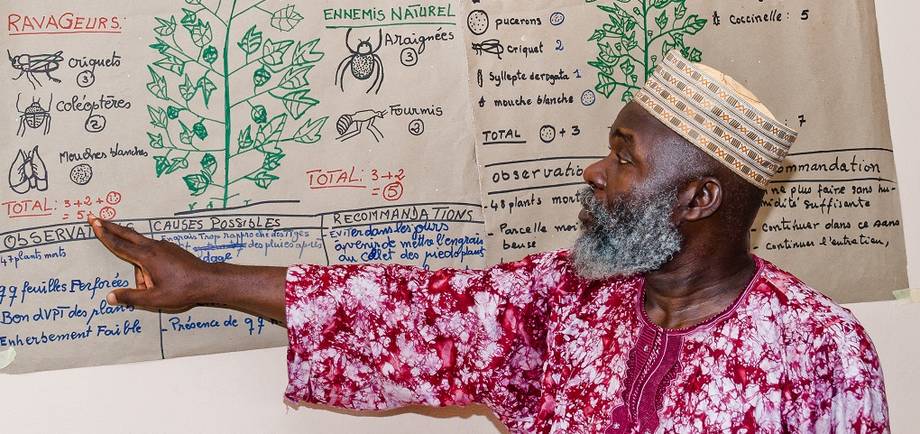Burkina Faso
- Integrating climate resilience into agricultural and pastoral production for food security in vulnerable rural areas through the Farmers Field School approach (GCP /BKF/077/LDF)
Burkina Faso is a land-locked West African country with a population of approximately 16.6 million and a surface area of 274,000 km. It has land borders with Mali, Côte d’Ivoire; Ghana, Togo, Benin and Niger. Burkina Faso is characterized by a dry tropical climate which alternates between a short rainy season and a long dry season. Broadly speaking, the country can be divided into three Climatic Zones: (i) the Sahel zone, with average rainfall between 300-600mm/year, and less than 45 rainy days per year (ii) the Sudan-Sahel zone with 600-900mm of rainfall/year and 50-70 rainy days (iii) the Sudan-Guinea zone with 900-1200 mm/year, and 85-100 rainy days.
The aim of this project is to enhance the capacity of Burkina Faso's agricultural and pastoral sectors to cope with climate change, by mainstreaming Climate Change Adaptation (CCA) practices and strategies into on-going agricultural development initiatives and agricultural policies and programming and upscaling of farmers adoption of CCA technologies and practices through a network of already established FFS.
SHARP is being used as a baseline assessment and integrated into the FFS activities to help better understand resilience and assist in learning.

